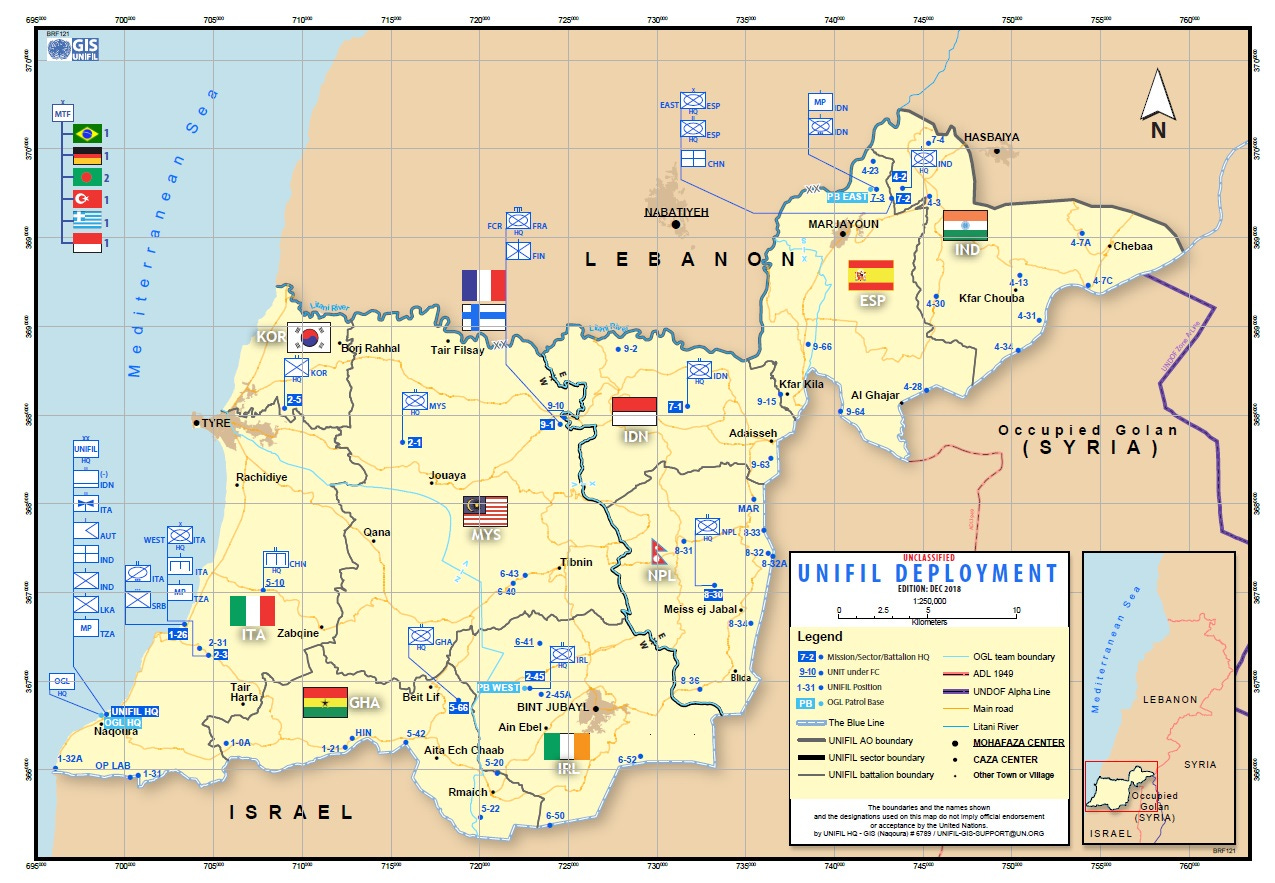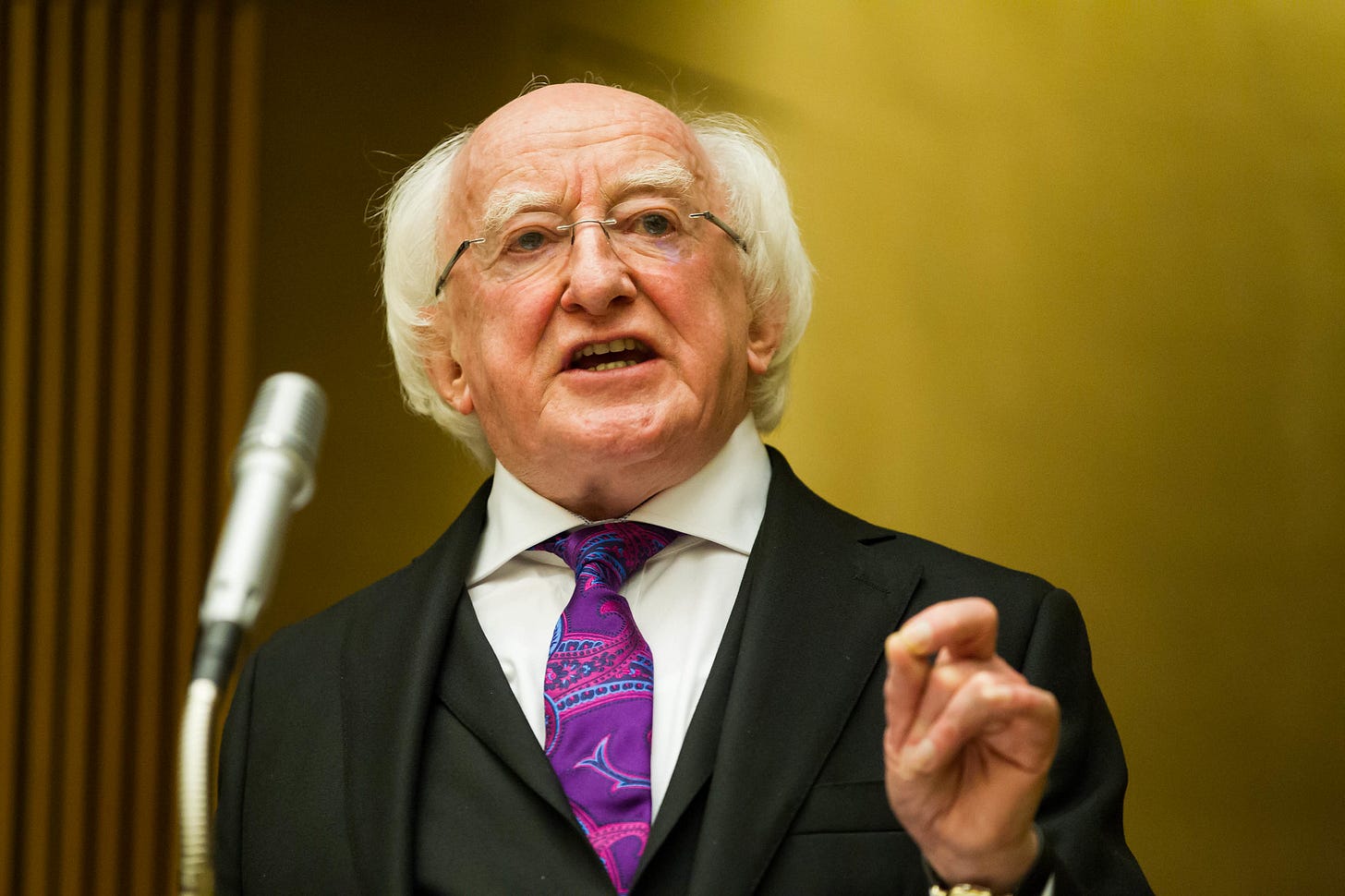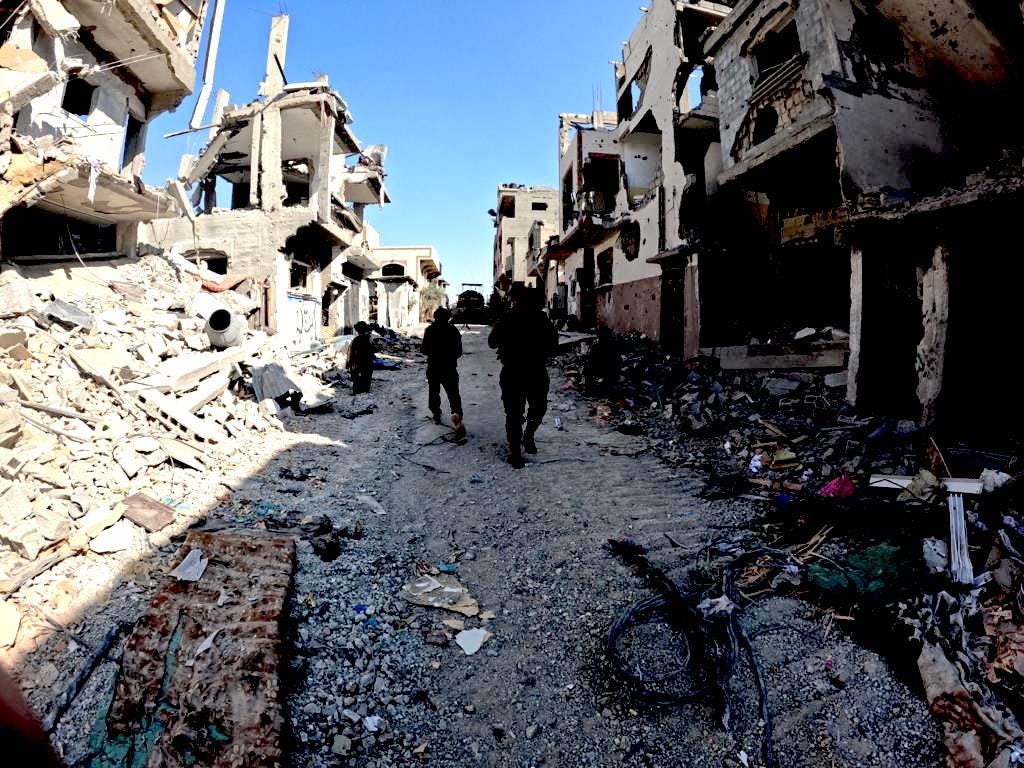Israel's 'outrageous threat' to UN peacekeepers invites further isolation
Ireland's President hits out at Israel as its invasion forces attempt to coerce Irish soldiers protecting villages in southern Lebanon from their post.

This story was first published by Consortium News
An Irish-Israeli diplomatic crisis has been defused after Israel withdrew its invasion force from firing positions metres from a UN post in south Lebanon staffed by Irish peacekeepers.
Irish President Michael D Higgins had called Israeli demands for UN peacekeepers to abandon their posts as its invading army crossed deeper into Lebanese sovereign territory “an outrageous threat.”
The incident underlined how Israel is increasingly alienating itself on the international stage while continuing to undermine institutions and instruments of international humanitarian law.
Satellite images published by Irish state broadcaster RTE showed two dozen Israeli Defense Force (IDF) military vehicles, including tanks, located just 60 metres from the boundary of UN outpost 6-52 last Saturday as it exchanged fire with Shia resistance group Hezbollah.
Al Jazeera reported on Thursday that United Nations peacekeeping chief Jean-Pierre Lacroix told the UN Security Council that safety and security of peacekeepers was “increasingly in jeopardy” after Israeli forces open fire on United Nations Interim Force in Lebanon (UNIFIL) posts, injuring two soldiers.
Since Monday 30 Irish soldiers stationed at UNP6-52, approximately 1km from the Lebanese town of Maroun El-Ras, had been bunkered down and isolated from their 300-odd comrades at Camp Shamrock, which lies West of Bint Jbeil and 7km from the border with Israel.
Israel’s actions prompted accusations from Hezbollah, Lebanese media, and Irish Defence Minister Micheál Martin who said the IDF was using the Irish troops as cover, or human shields, as it extended its invasion. When asked by a journalist if Irish peacekeepers were being used as such, Martin said, “they’re certainly availing of the cover that that presents.”
The UN had been communicating with the Israeli permanent mission to the UN in New York over the ongoing situation. On Tuesday UN Secretary-General António Guterres announced the Israeli forces had moved away from the Irish position after high-level talks.
A force of over 347 Irish soldiers is stationed in Lebanon, 332 of whom are attached to UNIFIL and stationed at Camp Shamrock (UNP 2-45), where RTE reported constant Israel drone activity above the camp last week.
They help make up a force of 10,000 UNIFIL international peacekeepers in southern Lebanon, which patrol the so-called Blue Line, a demarcation negotiated before Israel was forced from the country in 2006 following its invasion in 1982. More than 30,000 Irish troops have served in UNIFIL since its establishment in 1978.

UNIFIL this week instructed all battalions to limit movements as Israel continues to encroach farther into Lebanon, attacking Hezbollah targets and killing thousands of Lebanese civilians as they go. UNP6-52 is in the most precarious position of the 29 U.N. posts, all within 5km of the Blue Line, it said.
The IDF had requested UNIFIL battalions to retreat from some positions at the weekend where it was moving into, which UNIFIL rejected.
On Saturday, Higgins, who as Irish president is also supreme commander of the Defence Forces, said Irish soldiers were risking their lives on behalf of defenceless civilians in southern Lebanese villages and that Israel’s demand was an insult to those carrying out their mission. He said:
“It is outrageous that the Israeli Defence Forces have threatened this peacekeeping force and sought to have them evacuate the villages they are defending. Indeed, Israel is demanding that the entire UNIFIL operating under UN mandates walk away.
“This is not only an insult to the most important global institution to which 193 members are committed, but it is also an insult to the soldiers and their families who have taken risks so we might all live in peace and protect the most vulnerable.”

The rejection of Israel’s request for UN forces to withdraw was much to the chagrin of its government and supporters.
On Monday, Washington-based think tank analyst and former director of policy at the Jewish Policy Center, Matthew RJ Brodsky, even called for the area controlled by the Irish contingent to be carpet bombed and “napalmed.”
The Irish Defence Force on Monday had said troops’ movements had been limited, with supplies estimated to run out within weeks and the current environment not conducive to the movement of large convoys.
In a statement it said Israel had breached the Blue Line in multiple areas, raising “significant concerns, particularly regarding the breaches near our Irish Battalion posts.”
“These incursions have been accompanied by the establishment of a new military zone on the Israeli side, suggesting an intent to expand operations further,” it said.
Israel has been carrying out airstrikes in Beirut’s southern suburbs. It has also cut off the main border crossing between Lebanon and Syria, a key route for people fleeing Israeli bombardment that has so far killed more than 2000 civilians, according to Lebanese authorities.
The office for Irish Prime Minister Simon Harris said Harris had reiterated to Guterres on Monday that it was “unacceptable that UN resolutions and the blue line in southern Lebanon have been breached and violated with IDF military activity.”
Earlier UNIFIL spokesperson Andrea Tenenti told Irish media there had been intense shelling between Hezbollah and the IDF at the weekend and warned UNIFIL may order withdrawals from the area if fighting intensified.
Pressuring UNIFIL forces and putting its peacekeepers in danger is a new escalation by Israel in its disdain for the activities of UN agencies since October 7, 2003.

It has widely targeted the UN Relief and Works Agency for Palestinian Refugees (UNRWA) after invading Gaza, targeting its schools and health centres, as well as its employees, while accusing the organisation of being infiltrated by Hamas. Up to this week, it had killed 226 UN employees in Gaza over the past year.
However, targeting UN peacekeepers would further isolate Israel on the global stage and cause serious fallouts with the countries of origin of any soldiers killed or injured while patrolling the Blue Line.
The Israeli embassy in Dublin said Higgins’ interpretation of IDF requests to evacuate as “threats” were “unfounded and inflammatory,” as the requests for some troops to move were “for their own protection and safety.”
Tensions between Higgins and the Israeli embassy have been building for several months. Last month, Higgins accused the embassy of spying on him, intercepting and leaking a congratulatory letter sent to the newly-elected president of Iran Masoud Pezeshkian.
Israel’s diplomatic relationship with Ireland has been strained for some time. As a former colony of England, support for Palestine among the general population has been high, with its politicians among the most vocal in criticising Israel’s genocidal onslaught in Gaza.
However, much of the current government’s support for Palestinians has been tokenistic, with Harris’ right-wing coalition refusing to bring into law the Occupied Territories Bill (2018), which would ban trade with and economic support for illegal settlements in Israeli-occupied territories.

It was passed by majorities in both the Irish Seanad (upper house) and the Dáil (lower house), which prompted U.S. lawmakers to warn of serious repercussions to the Irish economy if implemented.
The UN has historically found it useful to involve Irish troops in peacekeeping missions to sensitive areas like Lebanon and the Congo, partly due to their country’s historic policy of neutrality and history of colonialism, offering a fig leaf to populations they embed with.
Forty-eight Irish soldiers were killed in Lebanon after their initial deployment in 1978 up to 2000, when Ireland completed its first deployment to UNIFIL. It sent its soldiers back as peacekeepers in 2006.
Several Irish peacekeepers were killed in Baraachit in separate incidents between 1986 and 1991, the same southern Lebanese town where an Israeli airstrike struck a municipal building on Monday, killing 10 firefighters in an attack reminiscent of the targeting of essential workers in Gaza over the past 12 months.
In 1986, an Irish soldier was shot dead after being fired on by IDF and Israeli militia forces positioned outside Baraachit. A year later an Irish soldier was killed when an IDF tank in the village fired shells into his UN post. In 1989 three Irish soldiers were killed by a land mine and shelling.
Ireland sent its soldiers back as peacekeepers after 2006, when Hezbollah forced Israel out of most of the country in a historic defeat for the Zionist state.





It's alarming with how much they've been getting away with even when UN peacekeeping forces are near - The restraint shown by the Irish indicative of their professionalism something that the cowardly IDF is lacking they've been shooting at everyone, even their own.
That our 'western' governments continue providing material aid is suggesting to me that they have been compromised.
Rules based order is very much in the gaslighting arsenal.
Medical professionals volunteering in Gaza speak of children being deliberately targeted by Israeli snipers, the Irish peacekeepers don’t stand a chance, as brave as they are. I wonder if Starmer is providing them any weapons, intelligence and support for self defence.